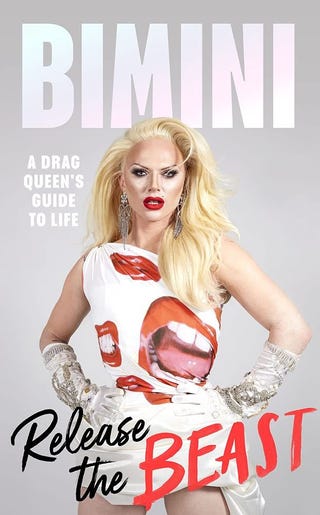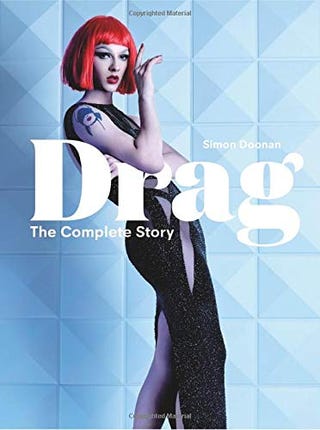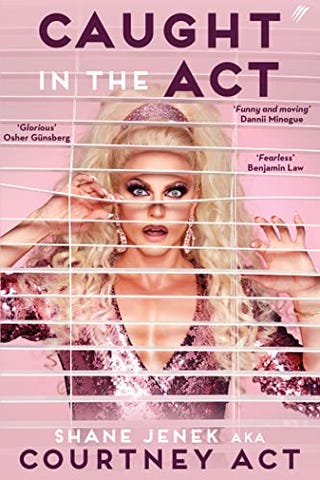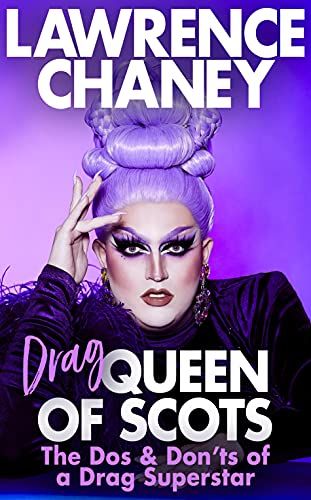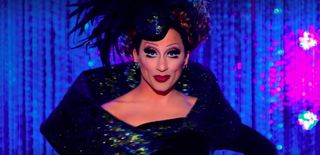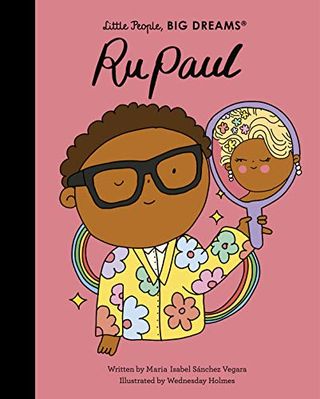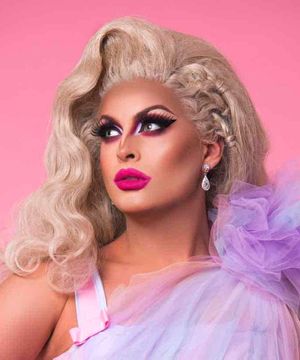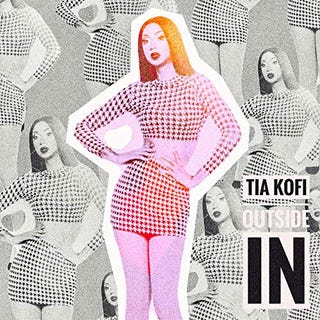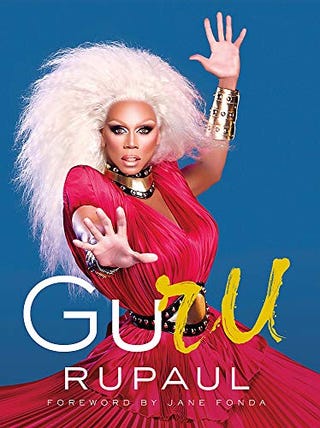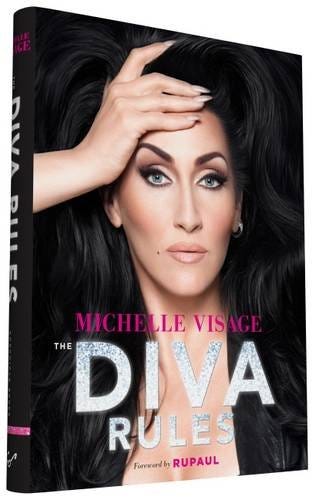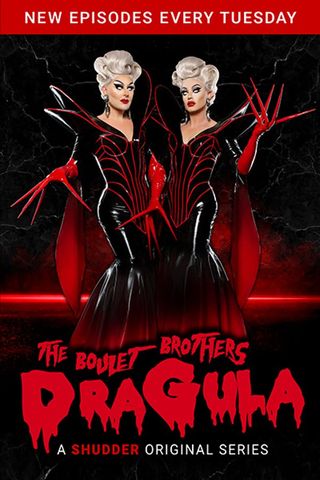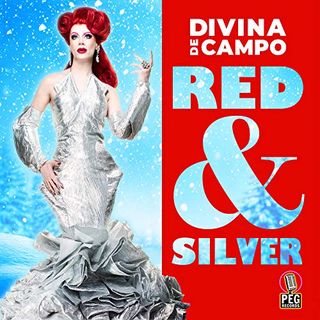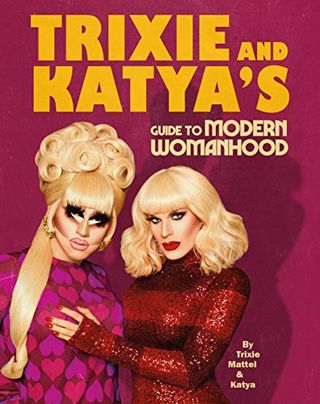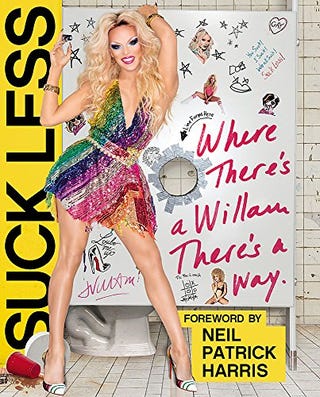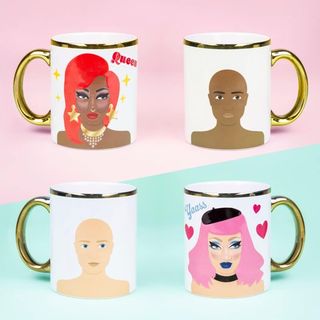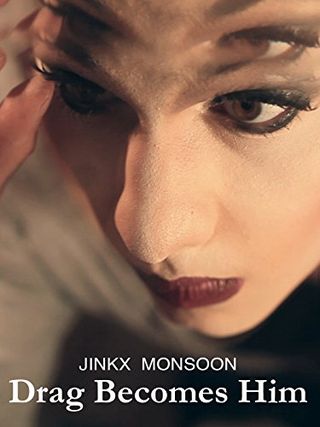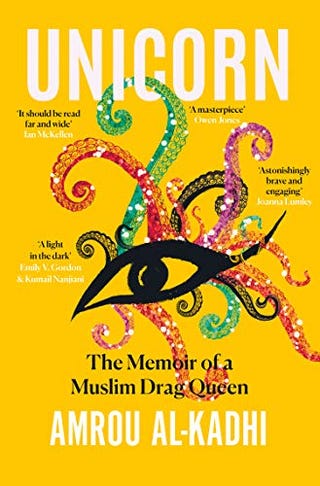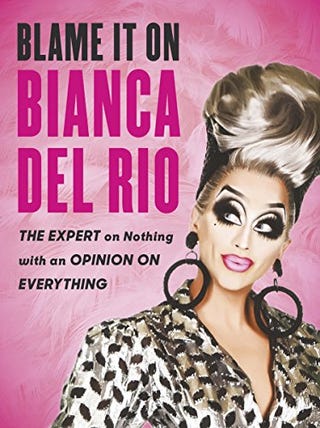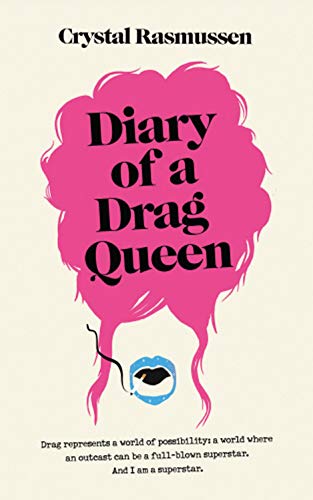Rainbow Crew is an ongoing interview series that celebrates the best LGBTQ+ representation on screen. Each instalment showcases talent working on both sides of the camera, including queer creatives and allies to the community.
Next up, we're speaking to Landon Cider about Call Me Mother, Dragula, and more.
The moment when Landon Cider was invited to join Call Me Mother, he was all in: "No matter what I had to do, whatever they wanted my involvement to be, I was in."
There's a lot that drew him to a judging role on the show, including "the camaraderie and the positive aspect of it," whereas the drama of other, similar drag competitions doesn't appeal to Landon as much.
"I know that's what makes them thrive, but it's not my favourite part," he laughs. "I tend to fast-forward through those parts." But with Call Me Mother, "It was so refreshing to see a competition that was celebrating the artists, and highlighting their potential."
"The critiques weren't just 'I don't like it – change it'," adds Landon. "It was always constructive criticism, coming from a place of love and positivity."
That urge to support and uplift the LGBTQ+ community perfectly summarises Landon Cider's approach to drag at large. Whether he's coaching drag kings and queens on Call Me Mother or coming to the defence of other artists online (more on that later), Landon Cider is a firm believer in the power of the queer community as one big chosen family.
In fact, Landon ended this interview by asking us to encourage readers to look up drag kings in your communities, or "just to support the non-traditional form of drag," whatever that might be. "Find someone that you can go out and support," he implores, and we absolutely echo that sentiment with our whole chest.
But before you do go find some local drag talent to support, take a moment to celebrate Landon Cider himself in this chat where we discuss everything from Call Me Mother and his Dragula win to life as the world's most prominent drag king.
What was it like coming in as a new judge for Call Me Mother season two?
I felt very welcome. They took very good care of me. They were always making sure I felt comfortable. They were very open, also, to listening to changes that they could make on camera, off camera, behind the camera, to be more inclusive. Because they also know that this is a new experience, almost experimental for the whole crew, and everyone behind the scenes as well.
So they're always willing to learn about what they could change or grow from. I found that quite refreshing, because my opinion as a drag king wasn't just being listened to and respected as a judge, but also from a production standpoint as well.
What kind of changes did you suggest?
There wasn't really much. It was mostly like, "What do you think about this? How do you think we could make this work?" One conversation that was had – they were already on the right path. It wasn't like there were any changes. It was more confirming that their concepts were right.
When Farra and Quinton did their photoshoot with the padding mini-challenge – it was kind of confusing for our king Justin Abit to think about how he could use pads for his drag, because you don't hear about kings using padding. But we do. We pad in different ways. But we do alter our bodies and shoulders and pecs. Things also get modified.
So it was a fun way to create a fake, made-up character, and make a padding for that character, and find your inspiration that way. Finding ways to take the creativity, and apply it without gender. And I think that is important, too, because androgyny in our drag is so important and vital to it. But it's kind of always seen as: you go either very masculine or very feminine in your drag. And the femininity has always been celebrated so much.
So it's finding that balance of listening to my concepts and my opinions. They were already on the right path. It was just kind of like, "Let's just mould this a little bit".
What does it mean for you to be in a position of power like this as a drag king?
I mentioned on the show that it's an honour to be representing the often-underrepresented, and not just representing as a competitor or a popup kind of special guest, but in a position of power.
I think we just kind of go, "Oh, there you go. You got what you needed. You've been asking for king representation in the shows, and now you can compete in the shows. There you go. Now stop bothering us."
But Call Me Mother has really taken it a step further, and is bumping it up, going, "No, we want to be inclusive, as well as in that place of power as a judge and as a mentor."
I have a lot of knowledge in this drag world. I've watched a lot of drag, and I learned from queens. I didn't have kings to look up to. I kind of carved this out for myself. I'm honoured to be an inspiration to a lot of kings across the country and the world.
But I'm still focusing on moulding my version of it from what I was learning from queens. So to have a show that understands we need that representation and this ability and power as well, was mind-blowing.
I always knew it'd be nice to either be a host of my own show, or have something where I have my opinions respected. But I didn't think it would come in this nature. It was so exciting to have the opportunity to share my knowledge.
And it's not binary. It's not just about kings. It's about performance, and stage presence, and story development, how you take your character and apply it to the challenges. There's so much involved in these competitions – and in drag in general – outside of gender.
How's your experience on Call Me Mother compared to your time on Dragula?
Dragula and Call Me Mother are obviously two very extremely different formats for drag competitions [laughs]. No one had to eat spiders on Call Me Mother, that's for sure.
I mean, it was nice. I wouldn't say it was easy, because it's very difficult to be in that position and to offer a critique, and to still make sure you're being positive – because Call Me Mother is such a positive show.
It was easy to be positive, but also, the cameras and the lights and all the people, and knowing that again, as a king, I might be picked apart a bit more by the misogynistic portion of our community.
So I kind of always had that pressure on my shoulders – that extra, I guess, stress of making sure I say the right things in order to represent a whole community that I can't often represent.
Victoria Scone has been dealing with misogyny in the community too just recently during her stint on Canada Vs The World. I saw that you backed Victoria online, but is there anything else you'd like to add on the subject?
Well, drag is a microcosm of a microcosm of a microcosm. We're a subculture within a subculture. So we have the same issues as the world and society does. Society is clearly misogynistic and full of the patriarchy. Those who are striving for full equality and equity, really mould what we're doing within the community as well.
I am not a stranger to misogynistic, often cisgendered male gay men in the bar at the shows, online, on Twitter. I constantly have heard many things about how kings don't deserve to be part of the community or onstage.
People forget about the fight that we've done as kings, and as women, and as assigned female-at-birth queer people. It's been a long, long journey of getting to this point where we actually have this representation.
I have a lot of cisgendered, gay men that support me who fight for me in the comments, and they're like, "I have witnessed what this person is talking about". And you have all these other ones that are saying, "No, that didn't happen. I never heard that before".
And it's like: so, trauma doesn't exist outside of what you've seen or witnessed? It just comes from that old misogyny and the patriarchy, really. But we're making great steps and we can only go forward. Whether you like it or not, we're here.
How has the perception of drag kings evolved in a positive way from your personal experience?
The difference from when I started drag – Googling what a drag king is and looking up on YouTube for representation… There was maybe one or two tutorials. There was really nothing out there.
And now, when you just plug "drag king" into Instagram, you're scrolling forever, and you're seeing a variety of artistry that expands any spectrum or binary. You still have the classic king, the male impersonator, the one that just wants to have everyone in the bar think that is a real dude and all that.
And then you have the glorious, colourful, androgynous. And then you have the alternative. You have this beautiful spectrum of artistry.
If people just take a couple of minutes to look it up, they would understand that we're exploding. It's completely 360 from when I started. It's so beautiful to see. And to be a part of that change – it's something that I will take with me forever, being a part of this moment, and slowly getting to being accepted in the mainstream.
I often hear that drag is healing, so I'd love to know how it's helped you personally?
I was lost in my art before drag. I've been an artist, a visual artist, since I picked up a pencil or a crayon for the first time. I was in a theatre growing up. I studied vocal performance in college. I had this whole array of special effects makeup, I started playing with in high-school. I had all these skills that I was growing and learning and interested in.
I'm also a Gemini, and I love a lot of different things [laughs]. So I have a wide variety of knowledge. I know a little bit about a lot of things. I don't know a lot about a couple of things [laughs]. It's the way my knowledge is spread out.
So I have this kind of arsenal of skills that I've been growing throughout my whole life. I was also kind of figuring out how to present myself as a lesbian. I played with all the drag cosplay versions of lesbians – typical stereotypical lesbians.
I was so caught up in this lost place. And then when I started drag, I started to find this blur of all of those things that I had played with in my own presentation, in my artistry. It all just came together. And it taught me how to be myself way more in my own presentation of androgyny.
I enjoy makeup. I enjoy the femininity. But I still feel more comfortable in more masculine clothing. And that really has come from the support and that comfort level that I got from drag.
Performing… I'm a storyteller in my performance. I bring a lot of different elements of my interest. So I have a wide, diverse repertoire of the kind of drag that I perform. Dragula showcased my interest in the dark and horror, but I have a lot of different kinds of drag.
That helps me bring out all of those stories, and those characters, as a performer, as an artist. And that therapeutic moment, especially through my political performances… I've just screamed sometimes when I'm performing on stage, just because it's getting all those emotions out that you can't get out any other way when you're a performer.
As a performance artist? That's our therapy, because that's how we're getting out our emotions and our feelings and the stories we want to tell.
Looking back, is there a particular moment of queer representation onscreen that's really resonated with you?
I think it's more the coded representation. For readers that aren't familiar with the Hays Code, I recommend you look up the Hays Code, and the history for film and TV, and the way we had to hide ourselves, and secretly share our stories through coding our language, coding the stories we were telling, and the way the characters were represented.
I have this weird connection to The Return to Oz with Fairuza Balk playing Dorothy... I don't know what it was about it. I do understand there's the queer storyline of a girl getting lost, trying to find herself, and having her own chosen family help her find herself back to home, which is herself.
But we also have Jack Pumpkinhead. You learn that his mother created him to look like that, but then thought that he was hideous, and kicked him out, and didn't accept him for who he was. What a coded storyline for queerness: your parents creating you and supposedly loving you, and then when you're just yourself, they reject you and kick you out.
Then Jack finds Dorothy, and he starts calling her mom. There's a little bit of a heart-wrenching moment. She's like, "I'm not your mom, but we can create this family together." Then they go on their adventures, and they create this family dynamic.
I didn't realise it then when I was obsessed with that movie, but looking back at it now, I realise: what a subconscious thing to take with you into life, that you have these moments.
Call Me Mother season two is now streaming on Froot TV.




